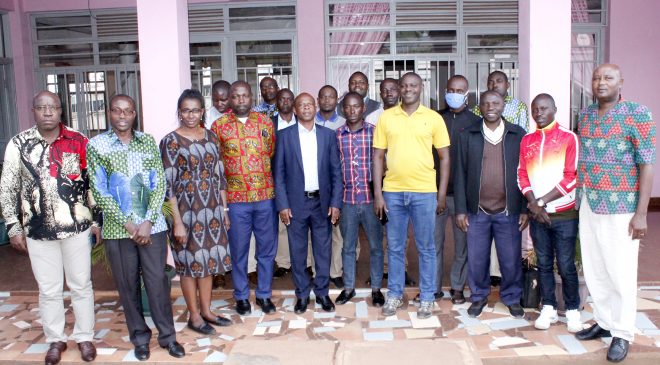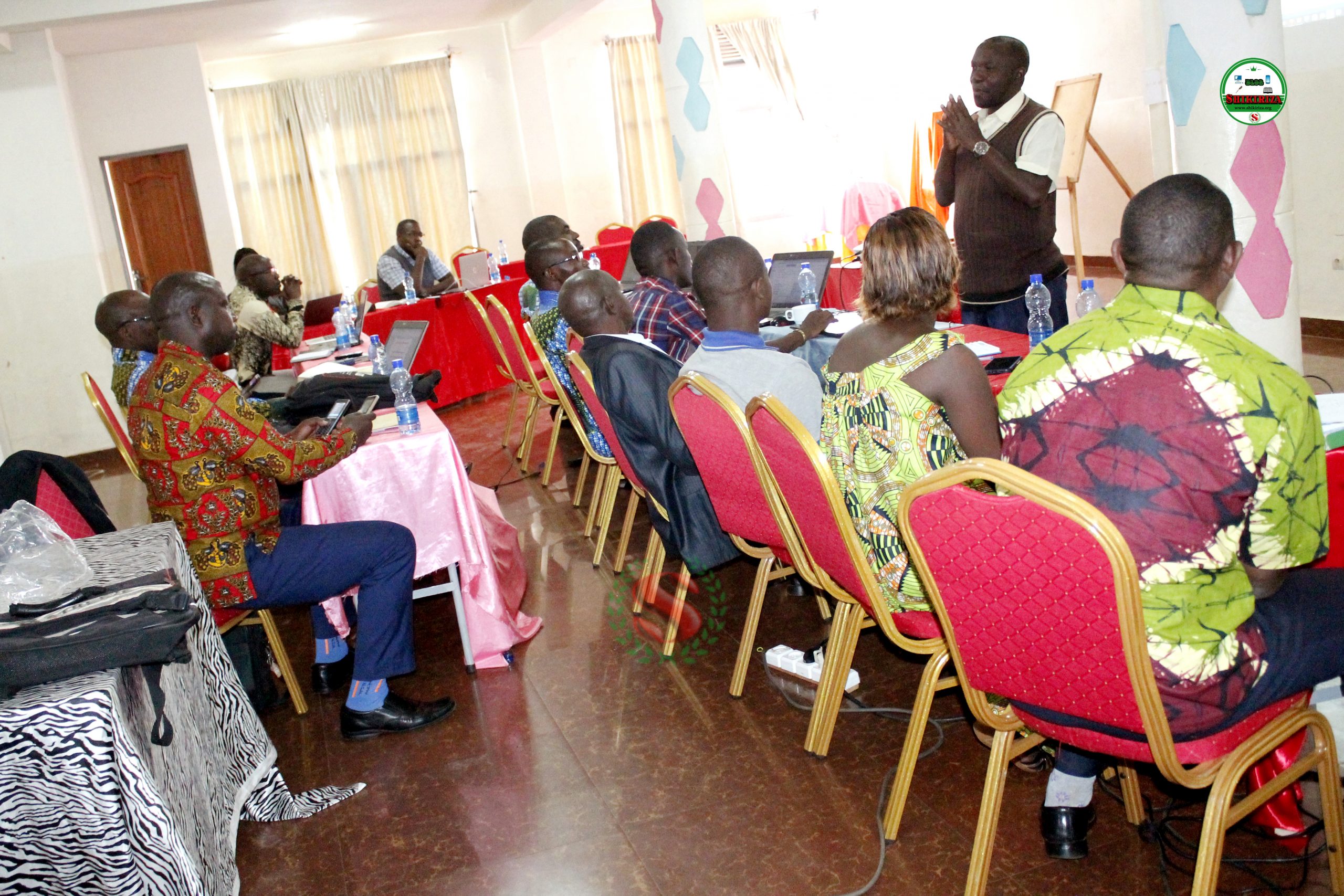As part of implementing successfully the project ‘‘Adapting to Climate Change in the Lake Victoria Basin (ACC-LVB)’’, a technical working session has been held at Gitega from August 03, 2021 to August 06, 2021. Twelve subprojects have been conceived. Six per one area of intervention for the two areas where the project is being implemented. A concept note from Burundi Geographical Institute (IGEBU in French acronym) has been also conceived, presented and validated. The administration and the population from both areas are called to do the ACC-LVB project as their own for its success.
‘‘Adapting to Climate Change in the Lake Victoria basin (ACC-LVB)’’ is a regional project executed by East Africa Community through Lake Victoria Basin Commission (EAC-LVBC) and implemented by five EAC partner states namely Burundi, Kenya, Uganda, Tanzania and Rwanda. This project is funded by Adaption Fund through United Nations Environment Program (UNEP).
ACC-LVB has the main objective which is to build resilience in vulnerable communities against the negative impacts of the climate change. The ACC-LVB project is increasing climate resilience through the transfer and implementation of adaptation technologies and improvement of adaptation knowledge in the region as its main objective clearly expresses it.
The ACC-LVB project, in Burundi, is coordinated by the Ministry of Environment, Agriculture and Livestock through the Burundian Office for the Protection of the Environment (OBPE in French acronym).
In Burundi, also, the ACC-LVB is being piloted in Busoni commune of Kirundo province and in Giteranyi commune based in Muyinga province. Four sites were identified in Busoni commune namely Rwibikara site, two sites in Gatete and Nyagisozi site while four other sites were also identified in Giteranyi commune namely Nzove, Kayove, Rukusha and Kijumbura sites.
For facilitating the project implementation, ACC-LVB is divided in components. And each component has activities to be executed as Mr Anicet Nkurikiye mentioned before adding that now, they are looking for how to implement activities of component 4 and evaluating the activities done in component 3.
What has been done for implementing successfully component 4 activities?

Family picture of participants in the four day technical working session held at Gitega
A technical working session has been held at Gitega from August 03, 2021 to August 06, 2021 for formulating, presenting, validating and then establishing the Community based sub-projects based on the promotion of innovative adaptation approaches. These sub-projects have as the main objective to address climate impacts by drawing on indigenous or local knowledge and technologies.
During that session, twelve sub-projects have been formulated, presented and validated under the presence of the regional delegation from Lake Victoria Basin Commission (LVBC) lead by the regional project coordinator, Dr Masinde Bwire.
Among those 12 sub-projects, six will be implemented in Busoni commune while other six sub-projects will be for Giteranyi commune. Each of the twelve sub-projects has a total budget of 12,000USD. And all those sub-projects are based on environment, agriculture and/or livestock.
The local administration and local technical team have been exhorted and engaged themselves to do their best for the success of those sub-projects and also for the achievement of all the whole ACC-LVB project aims.
The participants’ reaction towards the session and the project itself
All the participants agree on one thing. The ACC-LVB is so important and beneficial to them and their population.
According to Mr. Dismas NSAVYIMANA, the administrator of Busoni Commune, during the four day technical working session, they have gained a lot of things about climate change and as their commune is one of communes which are mostly affected by climate change effects in Burundi, he assumes that during that session, they gained more about what can help them to keep their commune in a good climate.
He is surely satisfied with the results and income of the session.
‘‘During the session, we formulated six community-based sub-projects for our Busoni commune. Each of them is funded up to 12,000USD. This amount is important and will help our population to change their lifestyle considerably’’, he uttered with a satisfied look.
For the success of those sub-projects, he calls on all the local administration agents and all the population to do those subprojects as their own.
‘‘We are going to sensitize all the population and administration agents to do these subprojects and the whole project their own for the full success’’, he added.
According to the administrator of Giteranyi commune, all that leads them to the vision of High Excellence the President of the Republic of Burundi which is about enabling every Burundian citizen to get money in their pocket and what to put under the teeth apart from helping people to adapt themselves to climate change is right and deserves their attention.
‘‘We are going to raise our population’s awareness so that they can know what they are asked to do for implementing successfully these subprojects which will lead us to the success of the whole ACC-LVB project’’ he ensured us at the end of his statement.
On the behalf of Mr. Anicet NKURIKIYE, the national project coordinator, the success of the ACC-LVB project will open up a great opportunity for Burundi to see this project extended to other parts of the country as it’s a pilot project to test whether this project is feasible and beneficial to local community and in helping them to adapt themselves to climate change.
‘‘All what we ask both the administration and population for the success of the ACC-LVB project is to work together as one team’’, he concluded with a serious mood.
Dr Masinde Bwire, the regional project coordinator, on his half, has exhorted all stakeholders in Burundi to work together, hard and strategically for the success of the project. He has ensured that if the project is widely succeeded in Burundi all people from different areas of EAC will come to learn from them and then show them that they are good workers.

